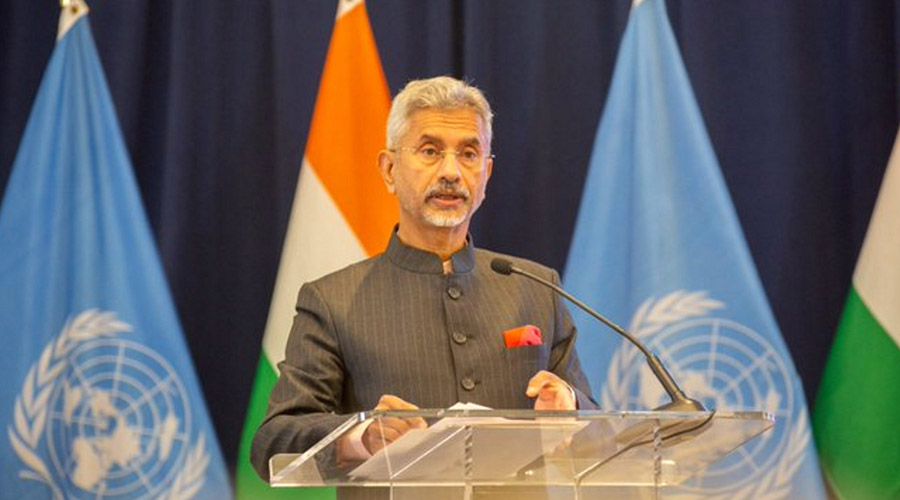The US on Thursday placed sanctions on the Mumbai-based Tibalaji Petrochem Pvt Ltd for buying petro products from an Iranian company to ship to China.
The sanctions were announced by the US treasury department on a day external affairs minister S. Jaishankar wrapped up his US visit, which he termed “fruitful”.
Almost an entire day later, no official reaction had come from either the Narendra Modi government or Tibalaji Petrochem.
Jaishankar had met senior members of the US administration during his visit to New York and Washington, including the secretaries of state, defence and commerce.
Tweeting a video that summarised his visit, Jaishankar — who has in recent months publicly argued for the US to allow Iranian oil to come into the market to ease the energy situation — said: “A fruitful visit to Washington DC concludes.”
Tibalaji Petrochem has been included among “an international network of companies involved in the sale of hundreds of millions of dollars’ worth of Iranian petrochemicals and petroleum products to end users in South and East Asia”.
According to the treasury department, “India-based petrochemical company Tibalaji Petrochem Private Limited has purchased millions of dollars’ worth of Triliance-brokered petrochemical products, including methanol and base oil, for onward shipment to China”.
About Triliance Petrochemical Co. Ltd, already sanctioned in 2020, the treasury department said it was a critical component of Iran’s petroleum and petrochemical sectors and brokered the sale of Iranian products to foreign buyers.
“It has purchased millions of dollars’ worth of Iranian petrochemical and petroleum products from Iran-based petrochemical brokers Iran Chemical Industries Investment Company and Middle East Kimiya Pars Co., which were ultimately shipped to India.”
The latest sanctions come at a time negotiations to resurrect the Iran nuclear deal, 2015 — the Joint Comprehensive Plan of Action (JCPOA) junked unilaterally by then US President Donald Trump — have hit a deadlock.
“Today’s action targets Iranian brokers and several front companies in the UAE, Hong Kong, and India that have facilitated financial transfers and shipping of Iranian petroleum and petrochemical products,” the treasury department said.
“These entities have played a critical role in concealing the origin of the Iranian shipments and enabling two sanctioned Iranian brokers.”
In a related statement on designating Iranian petroleum and petrochemical sanctions evaders, secretary of state Antony Blinken made it clear that this latest action was linked to the stalled JCPOA negotiations.
“As Iran continues to accelerate its nuclear programme in violation of the JCPOA, we will continue to accelerate our enforcement of sanctions on Iran’s petroleum and petrochemical sales under authorities that would be removed under the JCPOA,” Blinken, who had met Jaishankar on Tuesday, said.
“These enforcement actions will continue on a regular basis, with an aim to severely restrict Iran’s oil and petrochemical exports. Anyone involved in facilitating these illegal sales and transactions should cease and desist immediately if they wish to avoid US sanctions.”











